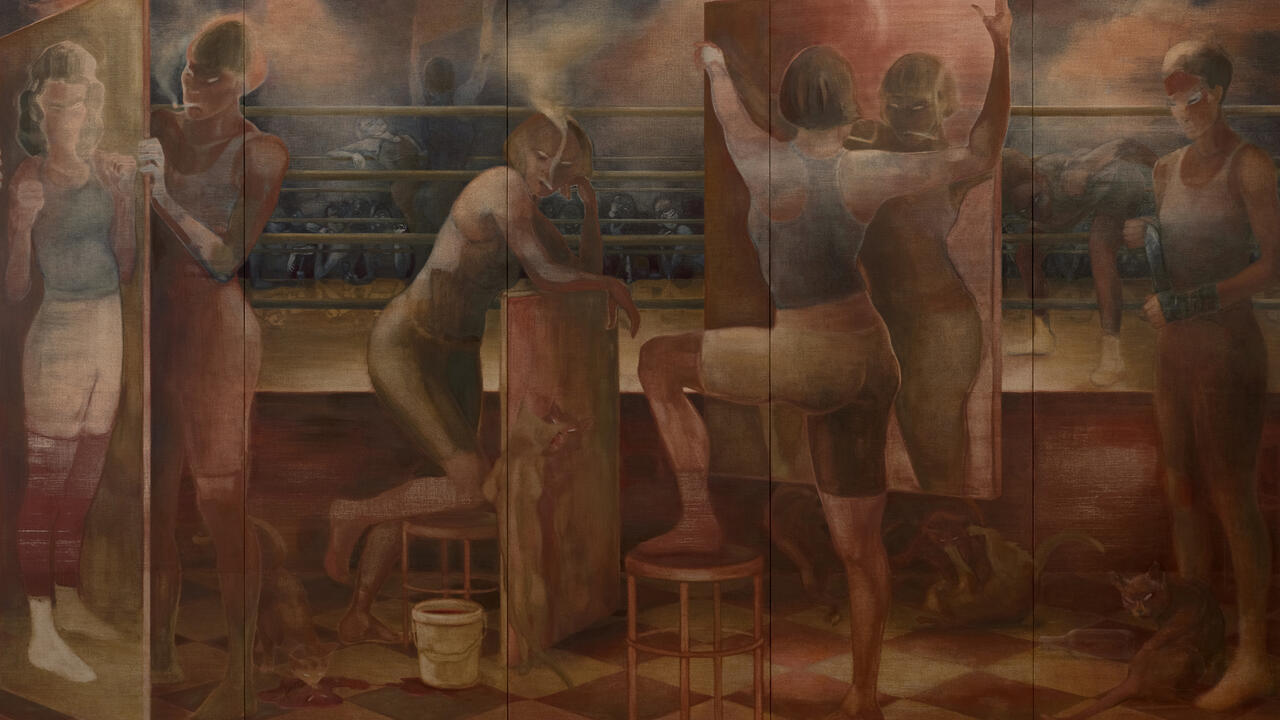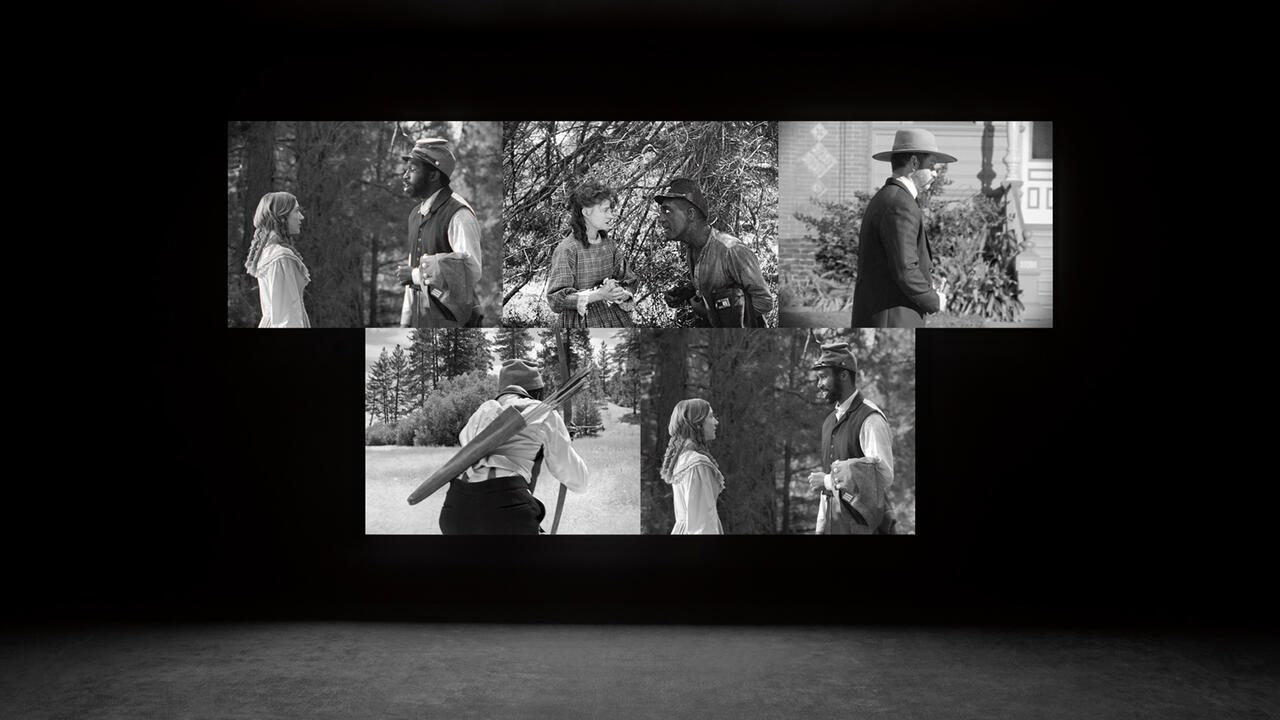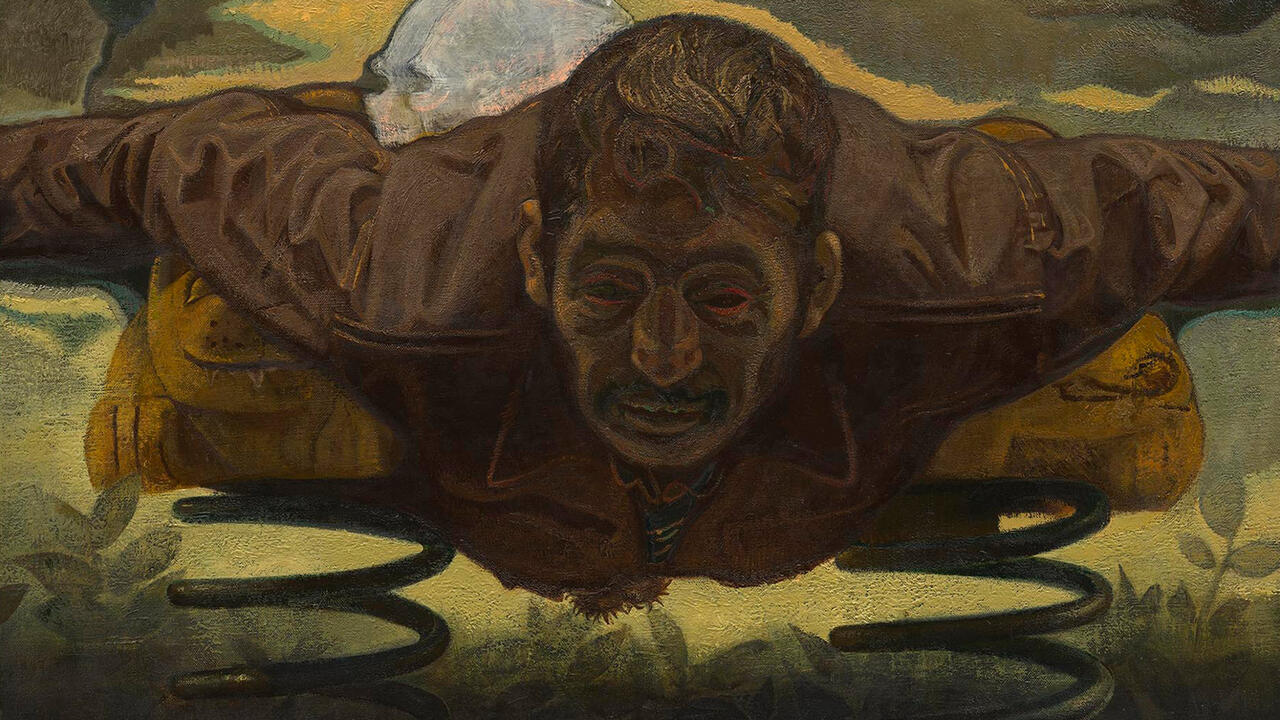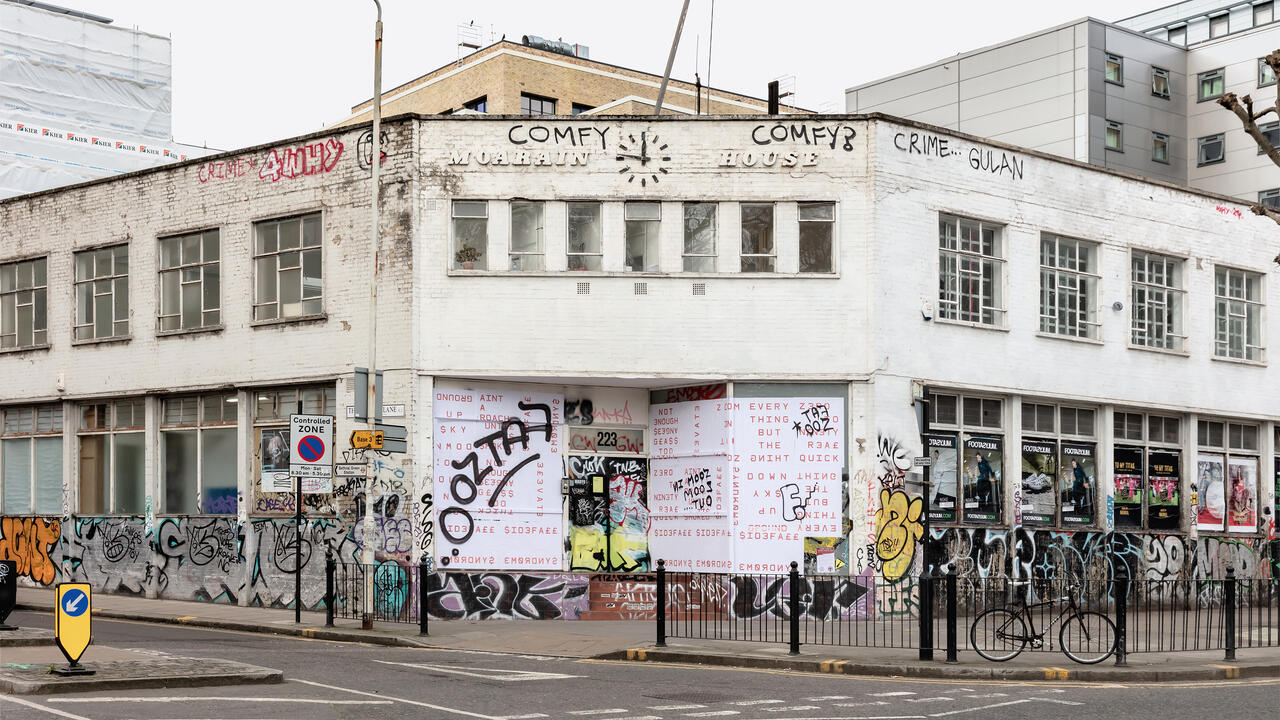Renzo Martens
Wilkinson Gallery, London, UK
Wilkinson Gallery, London, UK

The first thing that struck me about Renzo Martens’ new film Episode III – Enjoy Poverty (2008) – confusingly, the second in a trilogy – is the artist’s resemblance to the young Klaus Kinski. The numerous close-ups of his sweaty, troubled face (filmed by the artist himself on a hand-held digital camera) echo those of Kinski in Werner Herzog’s Aguirre, the Wrath of God (1972), Fitzcarraldo (1982) and Cobra Verde (1987). The second thing that struck me, despite its supposed exploration of the exploitation of third world poverty by aid organizations and news agencies, is how the film rehearses themes present in Herzog’s films. Each depicts a European living outside their comfort zone struggling to assert themselves in harsh, unfamiliar terrain, and ultimately realizing the futility of their endeavours. The third thing that struck me, after sitting through 90 minutes of Martens meeting aid agencies, photographers, plantation workers, guerrilla fighters, singing Neil Young songs to himself and attempting to convince the residents of a small village to let him set up a neon sign flashing the message ‘Enjoy Poverty Please’ – was how contradictory the film was.
Episode III… follows Episode 1, in which Martens visited refugees from the war in Chechnya, asking them deliberately insensitive questions such as ‘Am I handsome?’ in order to elicit a response that would, supposedly, give the viewer a sense of their individuality rather than see them as generic representations of suffering. Martens’ latest film repeats this gonzo strategy, with him playing the same narcissistic character. His central idea is that not only are the people of the Democratic Republic of the Congo unable to benefit from the wealth of their country’s natural resources, but that they are also being exploited by Western media organizations who, in cahoots with aid organizations such as Médecins Sans Frontières (a claim unsupported by anything like evidence), make money from images of poverty and violence. Martens persuades a small group of Congolese photographers, who make a living from photographing weddings or formal portraits, to try and sell images of suffering to Western news agencies, in order to take control over their media representation. Martens’ slogan for his doomed project is ‘enjoy poverty’ – the neon billboard that he takes with him on his journey.
Martens’ thesis is elementary stuff for anyone with half an interest in media studies. Its deliberately crass expression – the ‘art’ bit of what is essentially an average artist-plays-news-reporter film – is incoherent rather than revelatory, not least because Episode III… attempts to do too much at the same time. In its first half, for example, there is the unsubstantiated suggestion that Médecins Sans Frontières is complicit in the exploitation by Western corporations and UN-led forces. Unfortunately, Martens is too caught up playing the self-obsessed artist to really dig deep which results in very little actually being revealed.
Aside from questions of exploitation that are closer to home – the film’s presentation in a commercial gallery, for one – the most tiresome aspect of the work is the way it perpetuates the very things it is critiquing, such as the vicarious pleasures of watching other people in dangerous situations (it features images of rotting corpses and desperate malnourishment), and, in its quasi-Conradian narrative, a fascination with an exotic ‘other’. In not showing any aspects of their lives other than those necessary to advance his thesis, Martens’ portrayal of Congolese plantation workers or local photographers performs the same reductive stereotyping that the film supposedly criticizes. Martens’ knowingly gauche persona does not alter the fact that Episode III… exploits art audiences’ desires for work that demonstrates ‘authentic’ political engagement. By acknowledging his own complicity Martens does not legitimize it.























